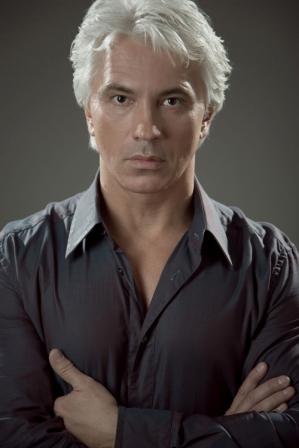Hvorostovsky’s recital plumbs the depths of the Russian soul

The vocal recital is one of the most intimate kind of performance, a direct communication from a single artist to an audience. The pleasure is compounded when the singer can shape the emotional scope of grand opera to fit the smaller confines of the recital hall.
Siberian baritone Dmitri Hvorostovsky offered that stirring blend at his recital Wednesday night with pianist Ivari Ilja at Symphony Center. His voice sounded slightly hoarse in the opening set of four songs by Faure. But by the time he hit two operatically scaled selections from Liszt’s Three Sonnets by Petrarch after intermission he was in full vocal and dramatic command.
Hvorostovsky is one of those artists who seems to be baring the depths of his soul whether he’s swaggering about as Mozart’s Don Giovanni or singing a Neapolitan folk song. His baritone is focused and flexible, with bright glints in its middle range that give it a sense of buoyancy. But a tinge of anger and regret is ever-present in its lower reaches. In the best possible way, we felt his pain Wednesday night in offerings like Sergei Taneyev’s stormy The restless heart is beating and Tchaikovsky’s regretful We sat together. It is the pain of anyone who has ever lived and loved.
The program was hardly standard recital fare. In addition to the Faure and Liszt selections, Hvorostovsky concentrated on two sets of Russian-language songs. He sang the complete set of Tchaikovsky’s Six Romances, Op. 73, and five songs by Taneyev.
Born in 1856, Taneyev was a prolific composer, dazzling pianist and influential teacher who was greatly revered in Russia. The vocal lines in Hvorostovsky’s selections flowed seamlessly, full of the urgent longing typical of the late Romantic era. The songs bristled with spicy details, however. In Menuet, Hvorostovsky’s anxious, almost hallucinatory vocal line pressed against the piano’s perky little snatches of 18th century-style minuets.
Ilja’s piano was a vivid, colorful partner through the recital, especially in the Taneyev songs and Liszt’s death-haunted Pace non trove.
It’s been a decade since Hvorostovsky’s last Symphony Center recital, but his sizable contingent of local fans was out in force. Something exciting happens when Russian musicians perform in Chicago. The audience is always packed with local Russia-born music lovers, and Russian is often the dominant language during intermission. The performers feel the welcoming vibe, and the bond between the stage and the audience seems especially close.
The feeling was palpable in the last of Hvorostovsky’s three encores. His first, Iago’s Credo from Verdi’s Otello was fierce, his voice curdling with bitter anger. In the next, the Neapolitan folk song Parlami d’amore, his romantic ardor was both manly and sweet.
But his final encore seemed to be a singular gift carefully chosen for his Russian listeners. Coming back onstage without Ilja, Hvorostovsky punched out a starting pitch on the piano and launched into an a cappella version of a Russian folk song titled Farewell My Joy. Savoring the long, slow melody, he bent and stretched it with the passion of a skilled blues singer recalling the pain of slavery days. The audience hung on every smoky, heartfelt note. You didn’t have to be Russian to savor the extraordinary moment.
Posted in Performances


Posted Feb 17, 2011 at 10:26 pm by Ann Raven
I was front row center at this Feb. 16 recital at Orchestra Hall. I was impressed by the flexibility and power of Hvorostovsky’s voice and the sensitivity of his interpretations. The recital was very affecting especially because there were many Russian-speaking people who knew the songs and were visibly moved by the music. It was an unforgettable evening.